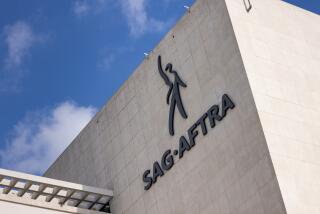Senate Votes Ban on Polygraph Tests for Job Applicants
- Share via
WASHINGTON — The Senate, acting with rare bipartisan accord on a civil liberties issue, gave final congressional approval Thursday to a ban on virtually all polygraph testing of job applicants and random checks on workers already hired.
The bill does, however, allow business firms to require employees to take polygraph tests during investigations of thefts or other crimes if a company declares in writing that it has a reasonable suspicion that the worker could be implicated.
Senate conservatives joined with liberals in approving the bill, 68 to 24. The House passed the measure, 251 to 120, last week. A leading Republican supporter of the measure, Sen. Orrin G. Hatch of Utah, said that he expects President Reagan to sign the legislation.
Proponents said that the polygraph, the so-called “lie detector,” often has been used to intimidate workers, cannot be relied on to predict future behavior and often has given misleading indications of whether a worker was telling the truth.
“Millions of job applicants have been tested with inaccurate instruments,” said Sen. Edward M. Kennedy (D-Mass.), a chief sponsor of the bill. “It was a 20th-Century version of witchcraft.”
Hatch, who rarely sides with Kennedy on major legislation, agreed: “It’s time to stop using the polygraph as a crystal ball to predict future behavior and limit its use to a tool for investigation of past events.”
The legislation was approved after complaints from organized labor and the American Civil Liberties Union of widespread abuse of polygraph tests in screening job applicants and periodically checking on the honesty of workers selected at random.
Kennedy said that a recent study by the congressional Office of Technology Assessment indicated that 25% of the conclusions of polygraph examiners turned out to be wrong. As a result, he said, as many as 240,000 of 2 million persons tested could be falsely accused of giving deceptive answers.
Judy Goldberg, a legislative representative for the American Civil Liberties’ Union, praised Congress for acting to curb use of the polygraph.
“I think it’s a terrific bill. It probably will stop 80% of the polygraph abuses,” Goldberg said. The ACLU favors a total ban on polygraph testing on grounds that it is an invasion of personal privacy, she said.
In the Senate debate, opponents said that an outright ban would go too far and that federal regulation of polygraph examinations would have been preferable.
“Business is paying good money to run these tests,” said Sen. Bob Graham (D-Fla.), who said employers in his state resorted to the device because Florida’s work force is so mobile it is difficult to conduct background investigations.
Hatch, however, said that the Senate hearing record is “replete with abuses” of polygraph tests for job applicants, including the use of “quickie” examinations that take only 15 minutes each and are most likely to produce inaccurate results.
Two groups of employers were exempted from the ban, drug companies and security guard firms. Federal, state and local governments also were exempted on the theory that public employees already are protected sufficiently against polygraph tests by court rulings.
A survey by the ACLU showed that nine states have no regulation of polygraph examinations and 19 others regulate only the examiners. California is one of 10 states that forbids employers to compel their workers to take a polygraph test but permits them to “request” such screening, the survey indicated.
Twelve states and the District of Columbia now bar business firms from requiring or requesting polygraph examinations of workers, the ACLU said.
The new federal legislation gives an employee the right to sue a firm if he or she is forced to submit to such a test or is penalized for refusal to do so.
More to Read
Get the L.A. Times Politics newsletter
Deeply reported insights into legislation, politics and policy from Sacramento, Washington and beyond. In your inbox twice per week.
You may occasionally receive promotional content from the Los Angeles Times.










